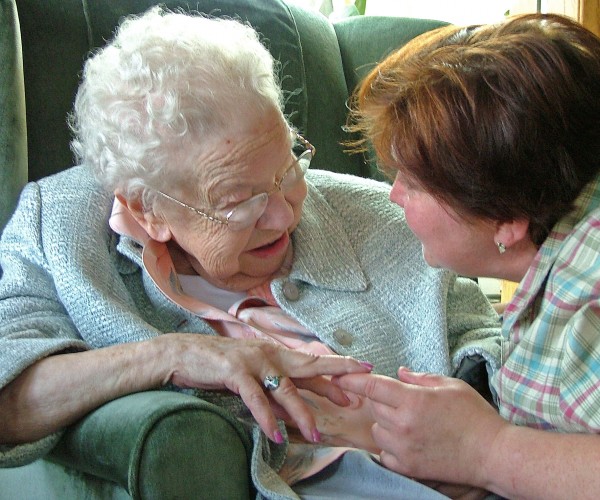Risk of Dementia Tied to Loss of…?

Dementia is a broad term for many diseases and conditions caused by the death of brain cells (neurons) or their inability to function properly. The most common form of dementia is Alzheimer’s disease, which accounts for 60% to 80% of dementia cases. Other forms of dementia encompass:
- Vascular dementia – also known as post-stroke or multi-infarct – about 10% of dementia cases.
- Dementia with Lewy Bodies (DLB) – caused by the clumping of the protein alpha-synuclein in the brain. Sometimes confused with Alzheimer’s.
- Mixed dementia – caused by more than one condition or illness.
- Parkinson’s disease – alpha-synuclein clumps are likely to begin in an area deep in the brain called the substantia nigra, and exhibits similar symptoms as DLB.
- Frontotemporal dementia – includes dementias such as behavioral variant FTD (bvFTD), primary progressive aphasia, Pick’s disease, corticobasal degeneration and progressive supranuclear palsy.
- Creutzfeldt-Jakob disease – rare fatal disease similar to mad-cow disease in cattle.
- Normal pressure hydrocephalus – caused by a buildup of fluid in the brain.
- Huntington’s disease – caused by a single gene mutation on chromosome 4.
- Wernicke-Korsakoff Syndrome – caused by a severe deficiency of vitamin B-1 (thiamine). Found in people with chronic alcohol abuse.
Speaking about Alzheimer’s disease only, around 1 in 8 people over the age of 65 will have Alzheimer’s. Approximately 1 in every 3 seniors will die with (not necessarily from) Alzheimer’s or any of the other forms of dementia.
Since there are a variety of forms of dementia, symptoms may vary, but here are 10 common symptoms to watch for:
- Short-term memory loss
- Problems finding the right words
- Mood changes
- Normal tasks become difficult to complete
- General confusion of many things
- Problems following a conversation, TV program or movie
- Saying the same thing over and over
- Difficulty coping with changes
- Difficulty understanding and following directions
- Listlessness or general apathy towards hobbies and routine activities
We previously discussed another symptom of dementia that was associated with walking:
“In the new study, researchers gave 112 older folks with MCI walking tests to check their speeds. Then, they got the same test all over again along with some cognitive puzzles that measure abilities such as attention span, concentration, memory, and more.”
“Some folks could pull it off without missing a step.”
“But others slowed down as they puzzled over the quiz — and, six years later, THOSE were the folks more likely to develop dementia.”
“The slower they moved, the bigger the risk, with walking speeds that dropped by 20 percent doubling and in some cases tripling the risk of dementia, according to the study.”
New research has found another possible symptom indicating one’s increased risk of dementia and it may surprise you.
How is your sense of smell?
According to a recent study:
“Older adults who’ve lost their sense of smell appear to have an increased risk of dementia, a new study suggests.”
“The long-term study included nearly 3,000 participants, aged 57 to 85, who were tested on their ability to identify five common odors.”
“At least four of the five odors were correctly identified by 78 percent of the participants, the researchers found. In addition, 14 percent identified three of the odors, 5 percent identified only two of the odors, 2 percent identified only one, and 1 percent could not identify any of the odors.”
“Five years after the test, the participants who weren’t able to identify at least four of the five odors were more than twice as likely to have dementia, compared to those with a normal sense of smell, the researchers said.”
“Nearly all of the participants who couldn’t identify a single odor had been diagnosed with dementia, along with 80 percent of those who identified only one or two of the five odors, according to the report.”
We often lose our sense of smell when we have a cold or other form of nasal congestion. However, if you don’t have any form of nasal congestion and notice that your sense of smell has changed, or if you notice that the sense of smell has changed for one of your elderly loved ones or friends, it may be a sign of the early stages of one of the forms of dementia and time to seek medical help.








Recent Comments